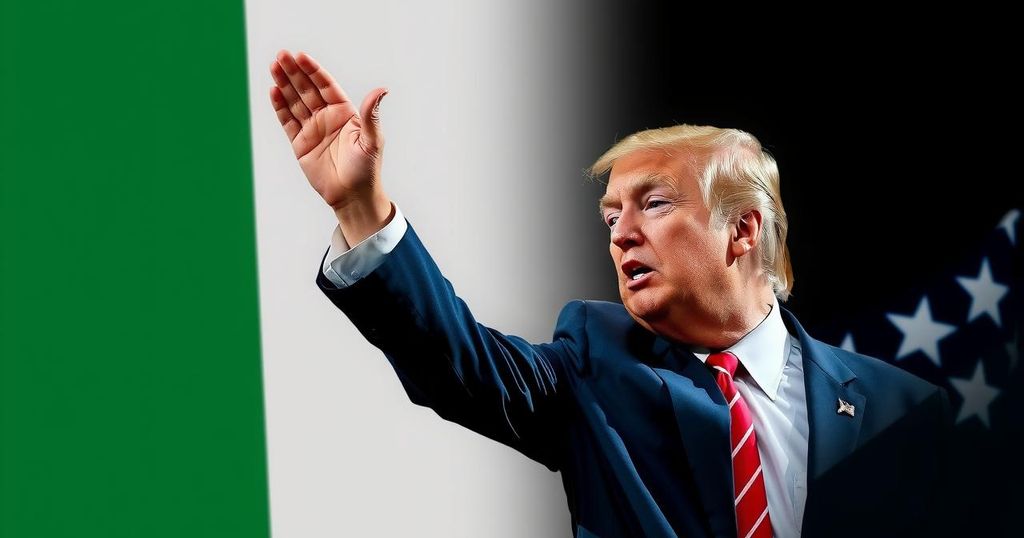Implications of Donald Trump’s Reelection for Nigeria and Africa

Donald Trump’s reelection signals profound implications for Nigeria, emphasizing self-reliance in funding and security as U.S. support may diminish. His stringent immigration policies could affect Nigerian migrants, while economic relations may shift due to American protectionism. The anticipated changes necessitate proactive strategies from Nigeria to navigate the evolving geopolitical landscape.
The recent reelection of Donald Trump as U.S. President poses significant implications for Nigeria, Africa’s most populous nation. Trump, having declared an unprecedented mandate to reshape American policy, is expected to implement radical changes in foreign relations, prioritizing non-interventionism and trade protectionism under the mantra of “America First.” This approach raises concerns for African nations like Nigeria, as it suggests a potential reduction in American support for development and security initiatives on the continent. Analysts predict that Trump’s victory could initiate an era where African countries will be required to self-manage their funding, support, and security. Despite Africa not being a prominent topic during the campaign, African leaders, including Nigeria’s President Bola Tinubu, have expressed hope for stronger ties with the U.S., emphasizing economic cooperation and addressing global challenges. However, concerns remain about Trump’s previous engagements with Africa, characterized by minimal interaction and controversial statements. During his campaign, he pledged to maintain stringent immigration policies, including mass deportation initiatives, which could significantly affect Nigerian migrants in the U.S. Experts have also suggested that Trump’s victory may adversely influence economic relations, particularly as he seeks to bolster American manufacturing and impose tariffs on imports. Additionally, his stance on LGBTQ rights aligns with traditional Nigerian views, presenting potential diplomatic tensions on societal issues. In summary, as Trump embarks on his second term, Nigeria must prepare for an evolving geopolitical landscape marked by reduced American intervention and support, along with a need for proactive domestic policies to navigate these changes.
The article discusses the potential consequences of Donald Trump’s reelection in the context of U.S.-Africa relations, specifically regarding Nigeria. Trump’s presidency is characterized by policies favoring American self-interest and non-interventionism, raising concerns about the implications for African nations reliant on U.S. support. With mixed sentiments across Africa about his victory, the focus shifts toward how Nigeria and other countries can respond to anticipated changes in foreign policy, immigration practices, and economic relations under Trump’s continued leadership. The article addresses differing perspectives on region-specific engagement and highlights past interactions that could influence future relationships.
In conclusion, Donald Trump’s reelection signifies a turning point for Nigerian-American relations, suggesting a shift toward self-reliance for Nigeria regarding security and economic development. With potential cuts to direct support and stringent immigration policies on the horizon, Nigeria may face greater challenges in its diplomatic and economic strategies. Nonetheless, there remains an opportunity for the Nigerian government to foster new partnerships and address internal issues proactively, ensuring stability in a changing international landscape.
Original Source: www.bbc.com







